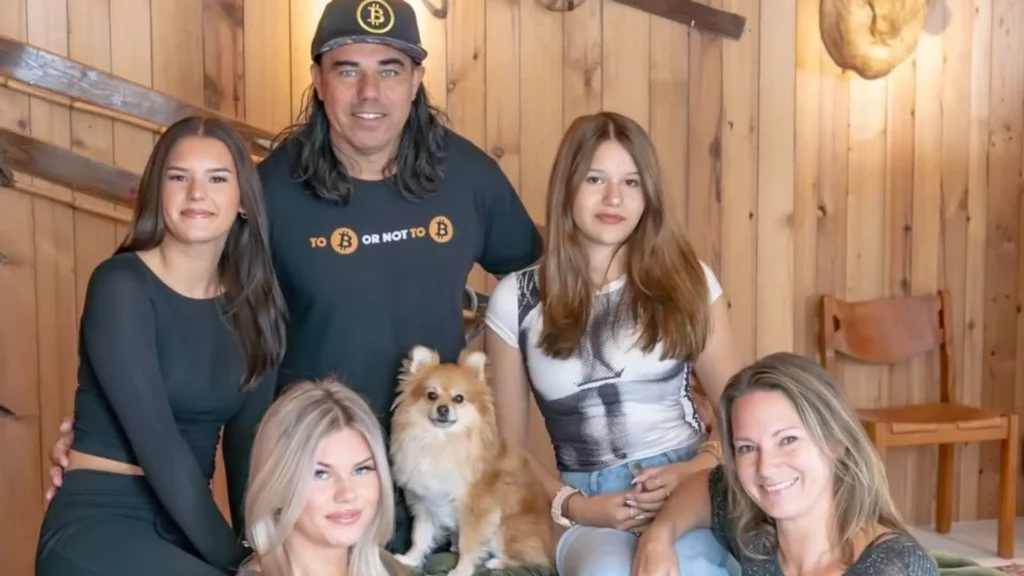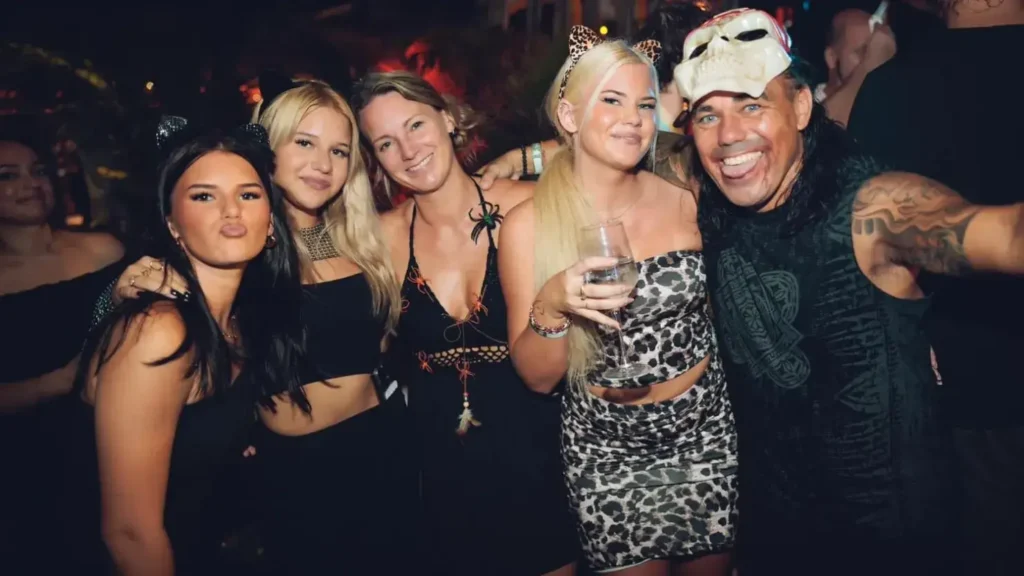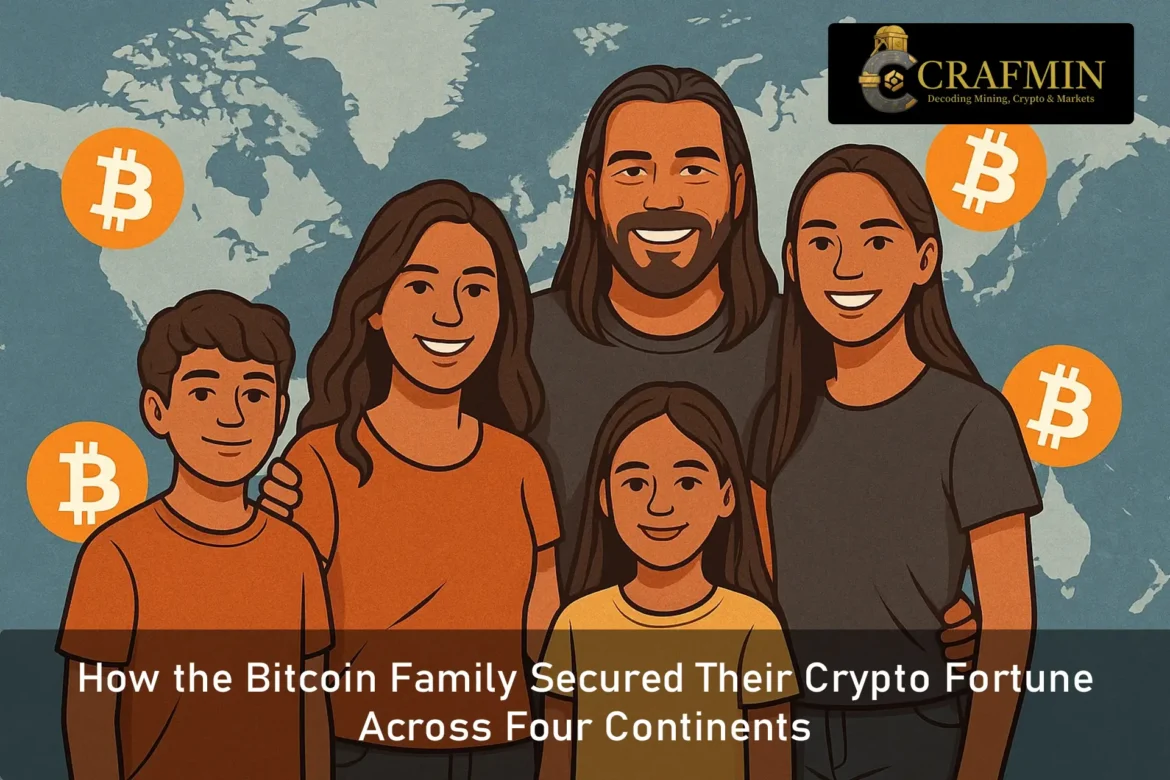Bitcoin Family Takes Extreme Measures to Safeguard Crypto Wealth After Threats
The Taihuttu family, widely known as the “Bitcoin Family”, has adopted a complex and global approach to safeguarding their cryptocurrency following a surge in attacks against prominent figures in the crypto industry. Their decision to change how they store their digital assets comes in response to a wave of violent crimes targeting individuals who hold large amounts of cryptocurrency.
Since selling all their possessions in 2017 to invest fully in Bitcoin—then priced at around US$900—the Dutch-Australian family has been travelling the world full-time. Completely disconnected from traditional banks, they’ve lived off digital currencies alone, making them highly recognisable figures within the crypto community.

Image 1: Bitcoin Family (Source: CNBC)
A Global Strategy for Security
Recent incidents involving kidnappings and physical threats against crypto holders pushed Didi Taihuttu, the head of the family, to implement major security changes. Attacks in France, the United States, and other countries have seen victims tortured and ransomed for access to their digital wallets. With stories of people having their passwords demanded at gunpoint or worse, Taihuttu no longer felt their previous security setup was safe.
The family once relied on hardware wallets—physical devices designed to store crypto offline—but they’ve now eliminated these entirely. Concerns about potential security flaws or remote access vulnerabilities led to their decision. Instead, they now rely on a combination of digital encryption and physically hidden backups.
At the heart of their new method is the “seed phrase”—a 24-word code that allows access to their Bitcoin. The family has split this code into four sections of six words each. These fragments are stored in locations across four continents. Some are protected using blockchain-based encryption platforms, while others are manually engraved onto steel plates and hidden physically in secret spots around the world.
To add an extra safeguard, Taihuttu has modified a few of the words in the code using a system only he understands. Even if someone were to find most of the pieces, the altered words would still protect the funds. Only someone who knows the changes would be able to reconstruct the full key.
Protecting Assets Without Trusting Others
Taihuttu believes in complete self-custody of his assets, refusing to hand over control to third parties. He avoids centralised vaults, such as Swiss mountain bunkers offered by major financial institutions, because of concerns about access in case those companies collapse. For him, decentralised control means true safety.
About 65 per cent of the family’s cryptocurrency is kept in “cold storage”, meaning it is completely offline and intended for long-term use. These funds are meant to be held until the value of Bitcoin reaches AU$1.5 million. Accessing them would require travelling internationally to gather the hidden parts of the seed phrase.
For day-to-day use, the family keeps small amounts in “hot wallets” that are connected to the internet. These wallets are secured through multi-signature systems, which require more than one person’s approval before any transaction can occur. This system prevents a single point of failure and ensures that no individual can act alone.
They also utilise multi-party computation (MPC) technology. This method distributes pieces of the private key across multiple people or systems. No single person, not even Taihuttu himself, holds the entire key. A minimum number of these parts must come together to approve any transaction, adding yet another layer of protection.

Image 2 (Source: CNBC)
Stepping Back for Family Safety
While technology plays a key role in their security, lifestyle changes have become just as important. The family recently stopped posting online updates about their travels. After receiving messages from individuals who had worked out their home’s location by watching videos, they relocated and stopped sharing public footage altogether.
Didi Taihuttu, whose children also carry small amounts of crypto, told CNBC that their family conversations now often revolve around safety plans. They’ve chosen to avoid travelling to certain countries, including France, due to recent high-profile incidents. While they still enjoy their travelling lifestyle, safety concerns now shape their decisions.
Read Also: Trader Eyes $10M from 1.8M Tokens: Bold Move Sends Shockwaves Through Crypto Markets
Most of Taihuttu’s trading now occurs on decentralised platforms, allowing him to maintain full control over his digital assets without trusting third parties. Centralised exchanges have recently suffered data breaches affecting thousands of users, reinforcing his decision to move away from them.

